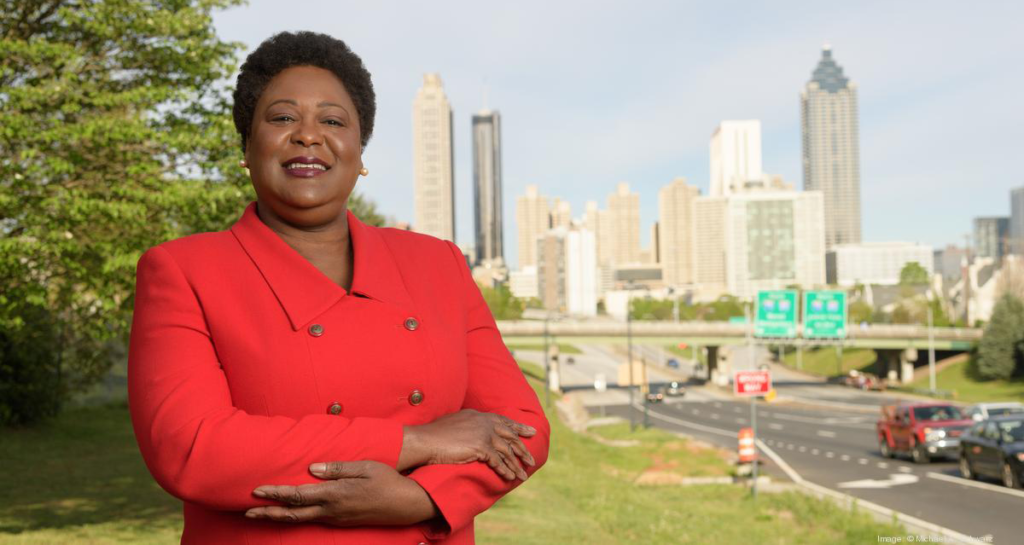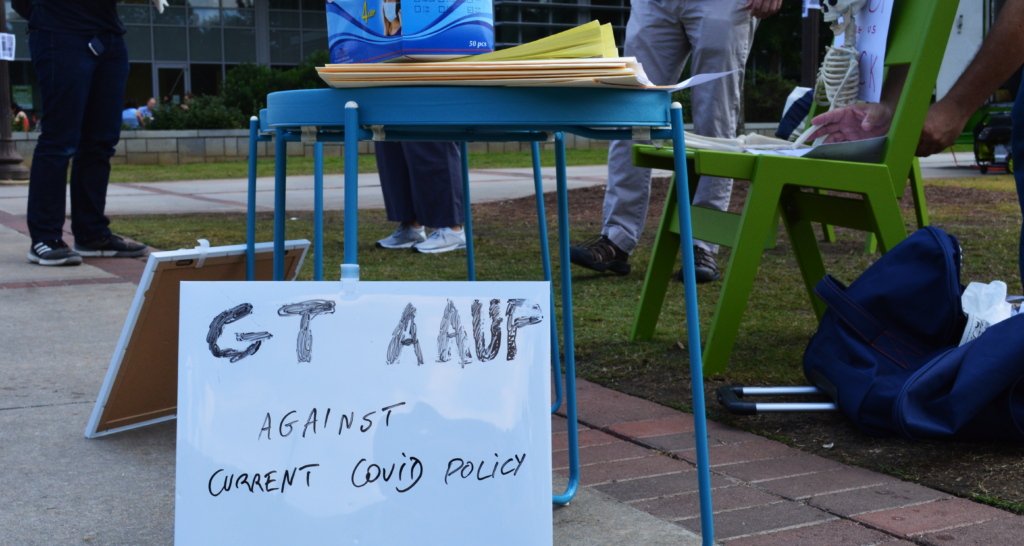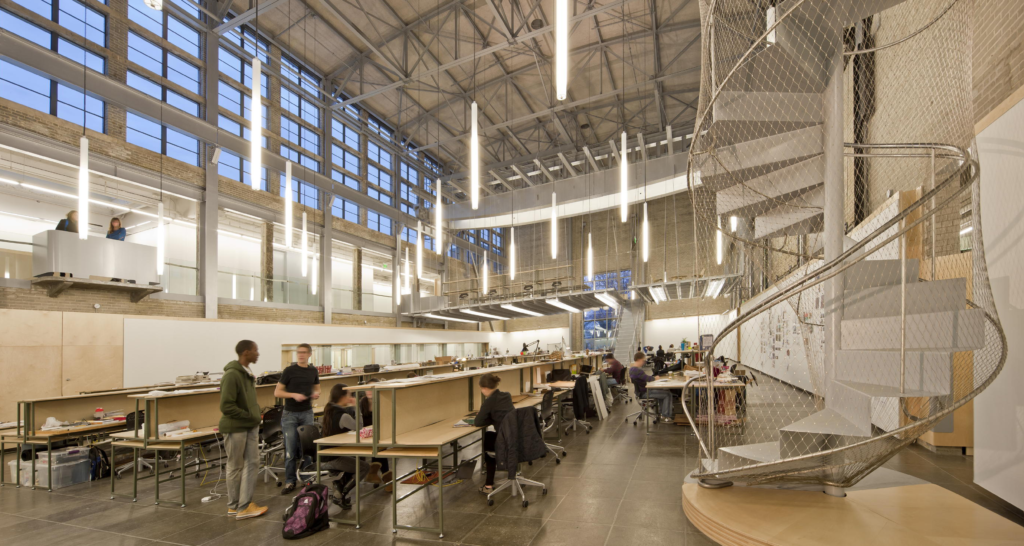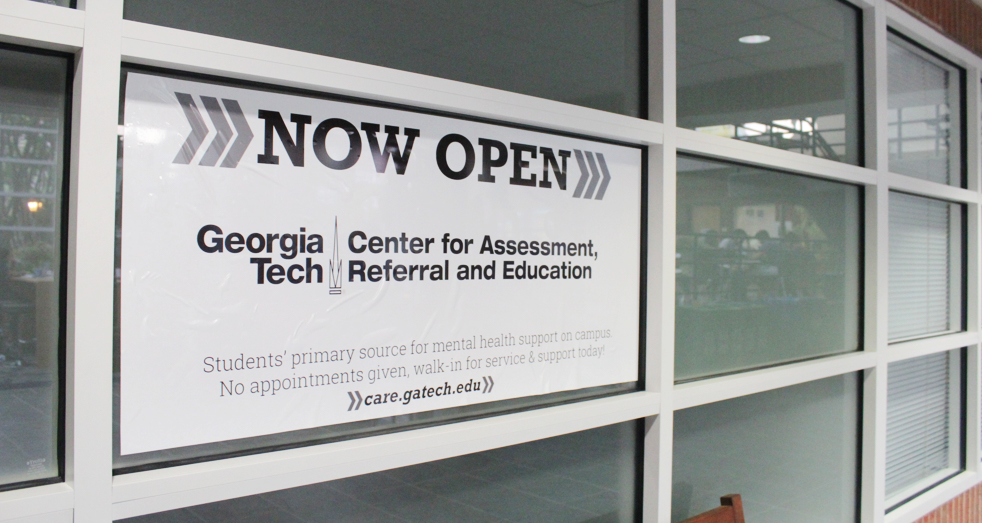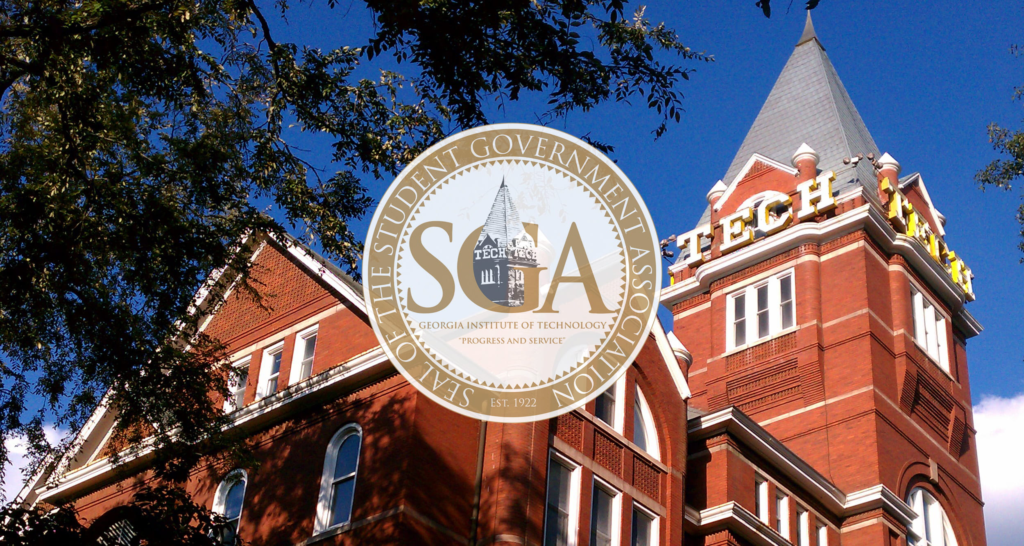
While Georgia Tech is often regarded as an elite institution focused on STEM and its subdisciplines, there are a multitude of political organizations on campus that encourage civic engagement for people affiliating with a large spectrum of political ideologies.
These organizations create a space for students to participate in discussions that deviate from linear algebra problem sets, and instead focus on the policies governing our nation and how emerging legislation impacts their communities.
Last week, the Student Government Association (SGA) hosted a Student Organization Political Debate at the Bill Moore Student Success Center. The four groups participating in the debate represented a wide variety of political views across campus as their spokespersons offered commentary on predetermined questions regarding local, federal, and international policy in alignment with their particular organization’s stances.
Tech College Democrats, Tech College Republicans, Young Americans for Liberty (YAL), and Young Democratic Socialists of America (YSDA) were all asked questions pertaining to Atlanta’s rise in crime, mass unionization efforts, the federal government’s role in improving disaster resilience, Afghanistan, and the efficacy of the Supreme Court in a sequence of 15 minute segments, with 45 seconds allotted to each group for rebuttals.
In terms of making Atlanta safer, all of the groups surprisingly agreed on the necessity for lowering mass incarceration rates that have arisen from non-violent drug possession charges; the groups differed on whether drugs need to be legalized or decriminalized with YAL and the College Republicans agreeing with decriminalization, while the College Democrats and YSDA defended legalization.
A spokesperson from YSDA emphasized, “We need to shift judicial focus from punishment to rehabilitation.” In order to do so, the organization advocated for investment in policies like Medicare for all, along with free higher education.
The College Democrats echoed these sentiments and proposed increased gun regulation, while the YAL spokespersons focused on reallocating police presence for greater effectivity and increasing safe access to firearms for the public.
The College Republicans agreed with limiting over-policing, but also wanted to increase the amount of conceal and carry permits available.
With the recent Texas abortion bill passage, the contentious topic of the Supreme Court’s role and politicization produced lively debate between the four organizations.
All of the spokespersons mutually agreed that the Supreme Court is a political institution, since justices are nominated by either Republican or Democratic administrations, and confirmed by Congress, which often leans towards one party.
However, YSDA and the College Democrats both called for the abolishment of the Supreme Court on grounds that it is undemocratic in its standing, and thus should be addressed as such in order to protect the American democratic process.
A College Democrat spokesperson reflected that, “The Constitution is a living document and its interpretation should reflect the needs and values of current Americans.”
College Republicans and YAL members repudiated the claim by emphasizing that the Supreme Court’s purpose is not supposed to be democratic in nature and packing the courts with progressive justices is not the right solution for de-politicization.
YAL’s spokespersons were in favor of constitutional amendments to Article III for abolition, but reminded the audience that doing so would, “Go to the very extreme of anarchy.”
The debate changed focus towards the public sector when the organizations were questioned on the importance of work unions. YAL spokespersons argued that the federal government should not get involved and unions should be free to negotiate their own terms of employment and with companies because there can be potential conflicts of interest between corporations and the government.
The College Republicans concurred with this stance and highlighted that current politicians lack economic knowledge and competence in order to fairly weigh in on unionization efforts.
In contrast, the College Democrats and YSDA spokespersons advocated for the involvement of the public sector by calling for fiscal penalties for executives who crack down on union strikes and repealing “Right to Work” laws that have been hindering union formation, citing a direct correlation between stagnant wages in recent years and a decline in union membership dating back several decades.
The SGA-led debate was just one example of the diverse political ideologies present at Tech’s. Students from every major and every background are able to join the College Democrats, College Republicans, YSDA and YSLA political organizations and engage in conversations about current political policies that impact them on a daily basis.
Whether it was discussing disaster rehabilitation efforts or America’s foreign policy in regards to Afghanistan, the organizations present at the debate were representative of the importance of conducive civic discourse at the Institute. Not only that, but many of these discussions were relevant to college campuses across the nation.
While disagreement on a multitude of issues was certainly present from all sides, the civility and cordiality presented from all sides underscored the importance of disagreeing respectfully, and working towards a common solution based upon working together instead of working against one another.

